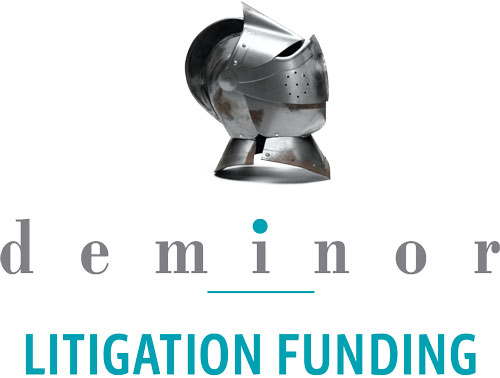
News and analysis dedicated to the commercial litigation funding sector including regulatory issues, case developments, funding activities, and more.

Commercial
3318 Articles

KBRA Assigns Preliminary Rating to TVEST 2021A, LLC Note

Delta Capital Partners Management Launches Delta Defense Solutions – Lit Fin Industry’s First Comprehensive Set of Funding and Risk Mitigation Solutions for Defendants and Respondents
Appeals Courts Clarify Litigation Funding for Bankruptcy
At present, the United States has about 40 litigation funding entities actively funding cases. Assets under management are estimated to be close to $10 billion. In the bankruptcy arena, some say legal funding isn’t growing. But there are two recent appeals court decisions that may change that.
How Might Cryptocurrency Impact Litigation Funding?
It was big news last year when Ava Labs debuted an ILO or Initial Litigation Offering. The ILO was released through the open-source platform Avalanche. Without going into minute details, Avalanche provides the ability to connect existing blockchain platforms into a single ecosystem in which digitized assets can be bought, sold, or traded.
Harbour Founder Discusses Litigation Funding Trends
Susan Dunn, a founder at Harbour Litigation Funding, recently gave a wide-ranging interview discussing pertinent issues regarding Litigation Finance, including global trends, the debate over value, defendant-side funding, and more.

Australia: The Evolution of a Litigation Finance Market
On Tuesday, June 15th, 6pm EST, Litigation Finance Journal is hosting a roundtable discussion on the evolution of Litigation Finance in Australia. Topics will include the increasing threat of industry regulation, the Joint Parliamentary Committee’s perspective on litigation funding and class actions, how Australia may serve as a blueprint of sorts for global jurisdictions including the US, UK and EU, and the structural and cultural differences inherent to running a litigation funding firm in Australia.
LIDW Looks at Litigation Funding and Class Actions
London International Disputes Week 21 includes numerous discussions on dispute resolution. This year’s theme, Looking forward: Change, Challenge, and Opportunity, encapsulates how the legal and financial worlds have had to adapt to a rapidly changing landscape.
UC Budget Approval Focuses on IP as a Budgetary Source
The University of California Board of Regents passed the 2021-22 budget at its most recent virtual meeting. The budget includes mental health support for students, open access for research, and finding new ways to innovate and support entrepreneurship. How will the university accomplish these goals without raising tuition? Partially through litigation funding.
Morgans Agrees to $5.5 Million Settlement Payout
One of the largest wealth management entities in Australia, Morgans, has agreed to settle its lawsuit with clients. The issues allegedly stemmed from one Brisbane-adjacent branch of the company that repeatedly caused concern for compliance officers.
DLA Piper Looks Toward Cryptocurrency and NFTs
It was only a few years ago that most people thought cryptocurrency was a passing fad. Non-fungible tokens (NFTs) are similarly misunderstood among consumers—but that may be about to change.
Estia Class Action Settles for $12.35 Million
Estia Health announced an agreement to settle a class action over disclosure. Shareholders allege that failure to disclose relevant information to ASX led to inflated stock prices.
UK Panel on Collective Actions & Litigation Funding
London International Disputes Week recently held a discussion regarding the role of litigation funding in collective actions. As the practice of third-party funding grows in popularity and scope, those in power have been seeking to regulate it.
Tech Giant Apple Embroiled in Class Action Asserting App Store Overcharges
Apple has been accused of flouting UK competition laws by overcharging UK customers for products from its app store. The London case, filed in the Competition Appeal Tribunal today, involves about 20 million customers in the UK.
Shattercane Decision Appealed
Claimants have launched an appeal in the Shattercane class action. The Queensland Supreme Court decision came down last month in the case, which involved contamination by shattercane weeds in seeds sold to produce sorghum.
India Confronts Litigation Finance
Members of the IALF Working Group met to discuss seven agenda items including filling leadership positions within the organization. Seven members attended via video, and six via Email.
Nike Counterfeit Case May Define US Court Reach Against Foreign Banks
Between 2013-2015, sportswear giant Nike won court battles against more than 600 counterfeit shoe sellers based in China. Assets were ordered frozen by a US court. While Nike did win, every counterfeiter defaulted on the judgment.
Australian High Court Rules on Competing Class Actions
Australian courts have had to adapt to the changes brought about by the increased use of litigation funding. The practice is a net gain for the community and clients who gain access to justice they could not otherwise afford. Still, some say that the availability of funding has sparked an untenable number of lawsuits—class actions in particular.
Collective Action Against James Hardie Proceeds
A funded class-action against the group of Australian building companies known as James Hardie is about to begin. Leaks in 376 buildings led to homeowners seeking damages of roughly AUD $220 million. Harbour Litigation Funding provided support for the case early on.
Judge Agrees to Oral Hearing in Possible Revival of BHP Case
BHP is, by market value, the largest mining company in the world. In 2015, the Fundao dam, owned jointly by BHP and Vale (Samarco) collapsed—killing 19 people and contaminating the Doca river, reaching all the way to the Atlantic Ocean over 400 miles away.
Battle Over Zhunus Judgement Continues
A $300 million judgment known in legal circles as “The Zhunus Judgement” is still being scrutinized by the parties involved. Harbour Litigation Funding brought several charges against Kazakhstan Kagazy JSC with relation to the judgment.

Apex Litigation Finance are recruiting for growth

Delta Capital Partners Management Hires Jonathan Sablone as Managing Director and Global Director of Originations

Deminor supports businesses in France to recover losses suffered due to COVID-19 lockdown measures
Sundance Resources Secures Litigation Funding from Burford Capital
Sundance Resources Ltd (“Sundance” or the “Company”) is pleased to announce it has signed a binding Capital Provision Agreement (“CPA”) with Burford Asia Investments Pte. Ltd. (“Burford”), an affiliate of Burford Capital Limited, the world’s leading global finance and asset management business focused on law.
Leveling the Playing Field with Litigation Finance
It is well understood that Litigation Finance offers plaintiffs a means to pay legal teams, experts, researchers, and others who can make or break a legal matter. But what else does third-party litigation finance accomplish?
Litigation Funding a Decade From Now—What Can We Expect?
Litigation Finance has changed dramatically in the last decade-plus. Boosted by a global health and financial crisis, third-party legal funding has risen to the occasion with spectacular adaptability. But as regulations evolve and societal understanding of the practice grows—how will that impact the industry in the years to come?
Therium Funds Norwegian Class Action
A class-action lawsuit against Sector Alarm and Verisure accuses the companies of over billing customers to the tune of NOK 1-2 billion.

Delta Capital Partners Announces the Expansion of the Global Asset Recovery Consortium into India
Shariah Compliance in Litigation Finance
The use of third-party legal funding is gaining acceptance around the world. In the Middle East, both civil and Shariah jurisdictions exist. This implies various concerns in regard to ensuring that legal funding is Shariah-compliant.


